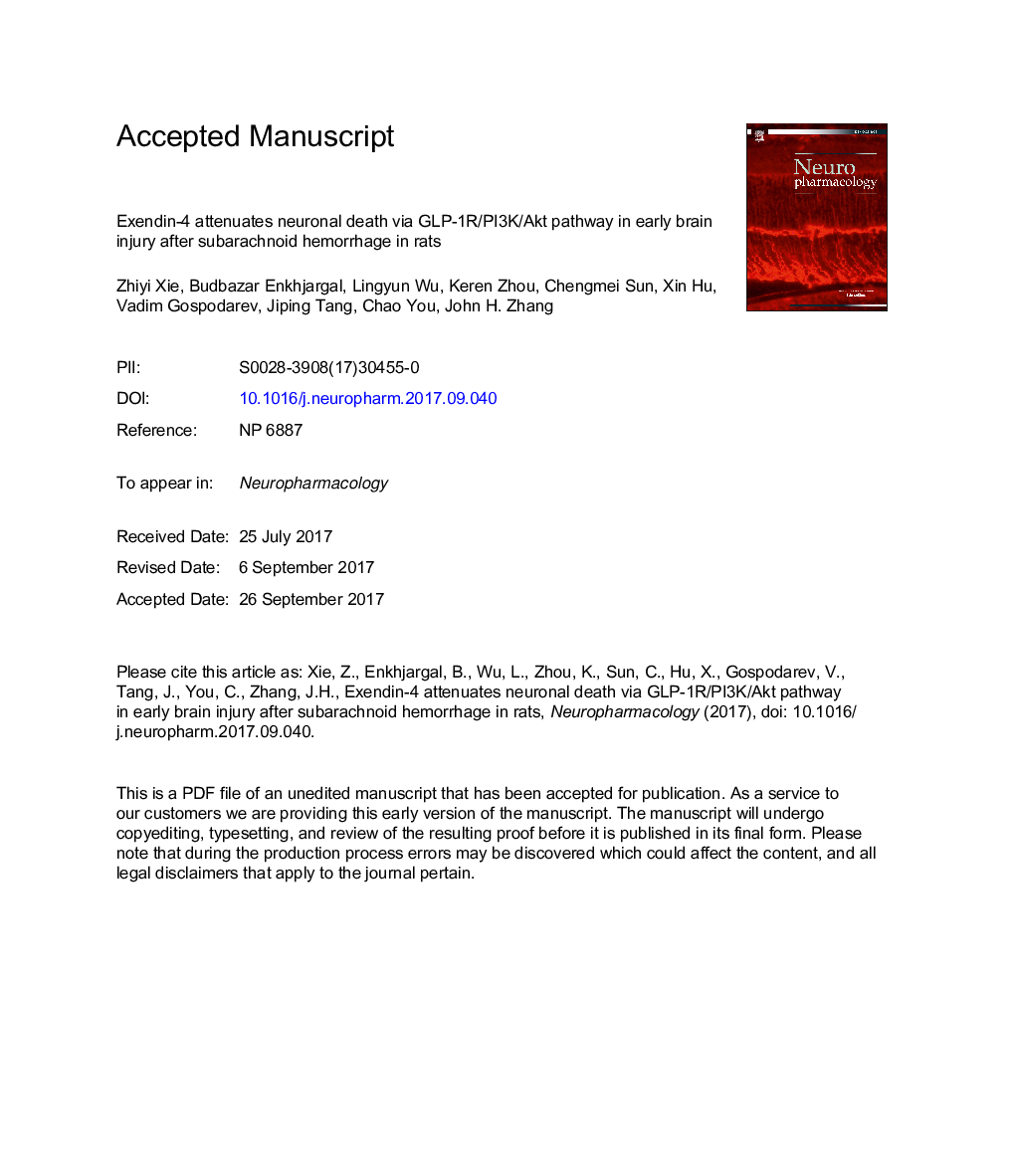| Article ID | Journal | Published Year | Pages | File Type |
|---|---|---|---|---|
| 8517477 | Neuropharmacology | 2018 | 35 Pages |
Abstract
Neuronal apoptosis is considered to be a crucial therapeutic target against early brain injury (EBI) after subarachnoid hemorrhage (SAH). Emerging evidence indicates that Exendin-4 (Ex-4), a glucagon-like peptide 1 receptor (GLP-1R) agonist, plays a neuroprotective role in cerebrovascular disease. This study was conducted in order to verify the neuroprotective role of EX-4 in EBI after SAH in rats. The endovascular perforation model of SAH was performed in Sprague-Dawley rats (n = 153). Ex-4 was intraperitoneally injected 1 h after SAH induction in the rats (SAH + Ex-4). To elucidate the underlying molecular mechanism, small interfering ribonucleic acid (siRNA) for GLP-1R and a specific inhibitor of PI3K, LY294002, were injected intracerebroventricularly into SAH + Ex-4 rats before induction of SAH (n = 6 per group). SAH grading evaluation, immunohistochemistry, Western blots, neurobehavioral assessment, and Fluoro-Jade C (FJC) staining experiments were performed. Expression of GLP-1R was significantly increased and mainly expressed in neurons at 24 h after SAH induction. Administration of Ex-4 significantly improved both short- and long-term neurobehavior in SAH + Ex-4 group compared to SAH + Vehicle group after SAH. Ex-4 treatment significantly increased the expression of GLP-1R, PI3K, p-Akt, Bcl-xl, and Bcl-2, while at the same time was found to decrease expression of Bax in the brain. Effects of Ex-4 were reversed by the intervention of GLP-1R siRNA and LY294002 in SAH + Ex-4+GLP-1R siRNA and SAH + Ex-4+LY294002 groups, respectively. In conclusion, the neuroprotective effect of Ex-4 in EBI after SAH was mediated by attenuation of neuronal apoptosis via GLP-1R/PI3K/Akt signaling pathway, therefore EX-4 should be further investigated as a potential therapeutic agent in stroke patients.
Related Topics
Life Sciences
Neuroscience
Behavioral Neuroscience
Authors
Zhiyi Xie, Budbazar Enkhjargal, Lingyun Wu, Keren Zhou, Chengmei Sun, Xin Hu, Vadim Gospodarev, Jiping Tang, Chao You, John H. Zhang,
